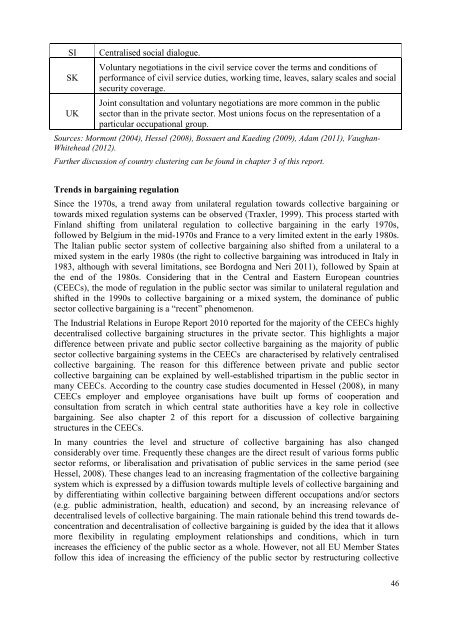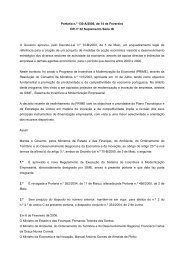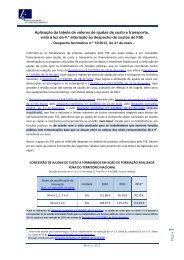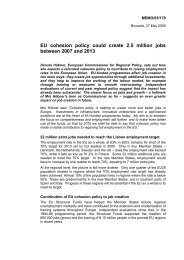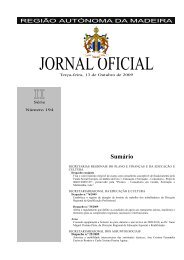Industrial Relations in Europe 2012 - European Commission - Europa
Industrial Relations in Europe 2012 - European Commission - Europa
Industrial Relations in Europe 2012 - European Commission - Europa
You also want an ePaper? Increase the reach of your titles
YUMPU automatically turns print PDFs into web optimized ePapers that Google loves.
SI<br />
SK<br />
UK<br />
Centralised social dialogue.<br />
Voluntary negotiations <strong>in</strong> the civil service cover the terms and conditions of<br />
performance of civil service duties, work<strong>in</strong>g time, leaves, salary scales and social<br />
security coverage.<br />
Jo<strong>in</strong>t consultation and voluntary negotiations are more common <strong>in</strong> the public<br />
sector than <strong>in</strong> the private sector. Most unions focus on the representation of a<br />
particular occupational group.<br />
Sources: Mormont (2004), Hessel (2008), Bossaert and Kaed<strong>in</strong>g (2009), Adam (2011), Vaughan-<br />
Whitehead (<strong>2012</strong>).<br />
Further discussion of country cluster<strong>in</strong>g can be found <strong>in</strong> chapter 3 of this report.<br />
Trends <strong>in</strong> barga<strong>in</strong><strong>in</strong>g regulation<br />
S<strong>in</strong>ce the 1970s, a trend away from unilateral regulation towards collective barga<strong>in</strong><strong>in</strong>g or<br />
towards mixed regulation systems can be observed (Traxler, 1999). This process started with<br />
F<strong>in</strong>land shift<strong>in</strong>g from unilateral regulation to collective barga<strong>in</strong><strong>in</strong>g <strong>in</strong> the early 1970s,<br />
followed by Belgium <strong>in</strong> the mid-1970s and France to a very limited extent <strong>in</strong> the early 1980s.<br />
The Italian public sector system of collective barga<strong>in</strong><strong>in</strong>g also shifted from a unilateral to a<br />
mixed system <strong>in</strong> the early 1980s (the right to collective barga<strong>in</strong><strong>in</strong>g was <strong>in</strong>troduced <strong>in</strong> Italy <strong>in</strong><br />
1983, although with several limitations, see Bordogna and Neri 2011), followed by Spa<strong>in</strong> at<br />
the end of the 1980s. Consider<strong>in</strong>g that <strong>in</strong> the Central and Eastern <strong>Europe</strong>an countries<br />
(CEECs), the mode of regulation <strong>in</strong> the public sector was similar to unilateral regulation and<br />
shifted <strong>in</strong> the 1990s to collective barga<strong>in</strong><strong>in</strong>g or a mixed system, the dom<strong>in</strong>ance of public<br />
sector collective barga<strong>in</strong><strong>in</strong>g is a “recent” phenomenon.<br />
The <strong>Industrial</strong> <strong>Relations</strong> <strong>in</strong> <strong>Europe</strong> Report 2010 reported for the majority of the CEECs highly<br />
decentralised collective barga<strong>in</strong><strong>in</strong>g structures <strong>in</strong> the private sector. This highlights a major<br />
difference between private and public sector collective barga<strong>in</strong><strong>in</strong>g as the majority of public<br />
sector collective barga<strong>in</strong><strong>in</strong>g systems <strong>in</strong> the CEECs are characterised by relatively centralised<br />
collective barga<strong>in</strong><strong>in</strong>g. The reason for this difference between private and public sector<br />
collective barga<strong>in</strong><strong>in</strong>g can be expla<strong>in</strong>ed by well-established tripartism <strong>in</strong> the public sector <strong>in</strong><br />
many CEECs. Accord<strong>in</strong>g to the country case studies documented <strong>in</strong> Hessel (2008), <strong>in</strong> many<br />
CEECs employer and employee organisations have built up forms of cooperation and<br />
consultation from scratch <strong>in</strong> which central state authorities have a key role <strong>in</strong> collective<br />
barga<strong>in</strong><strong>in</strong>g. See also chapter 2 of this report for a discussion of collective barga<strong>in</strong><strong>in</strong>g<br />
structures <strong>in</strong> the CEECs.<br />
In many countries the level and structure of collective barga<strong>in</strong><strong>in</strong>g has also changed<br />
considerably over time. Frequently these changes are the direct result of various forms public<br />
sector reforms, or liberalisation and privatisation of public services <strong>in</strong> the same period (see<br />
Hessel, 2008). These changes lead to an <strong>in</strong>creas<strong>in</strong>g fragmentation of the collective barga<strong>in</strong><strong>in</strong>g<br />
system which is expressed by a diffusion towards multiple levels of collective barga<strong>in</strong><strong>in</strong>g and<br />
by differentiat<strong>in</strong>g with<strong>in</strong> collective barga<strong>in</strong><strong>in</strong>g between different occupations and/or sectors<br />
(e.g. public adm<strong>in</strong>istration, health, education) and second, by an <strong>in</strong>creas<strong>in</strong>g relevance of<br />
decentralised levels of collective barga<strong>in</strong><strong>in</strong>g. The ma<strong>in</strong> rationale beh<strong>in</strong>d this trend towards deconcentration<br />
and decentralisation of collective barga<strong>in</strong><strong>in</strong>g is guided by the idea that it allows<br />
more flexibility <strong>in</strong> regulat<strong>in</strong>g employment relationships and conditions, which <strong>in</strong> turn<br />
<strong>in</strong>creases the efficiency of the public sector as a whole. However, not all EU Member States<br />
follow this idea of <strong>in</strong>creas<strong>in</strong>g the efficiency of the public sector by restructur<strong>in</strong>g collective<br />
46


